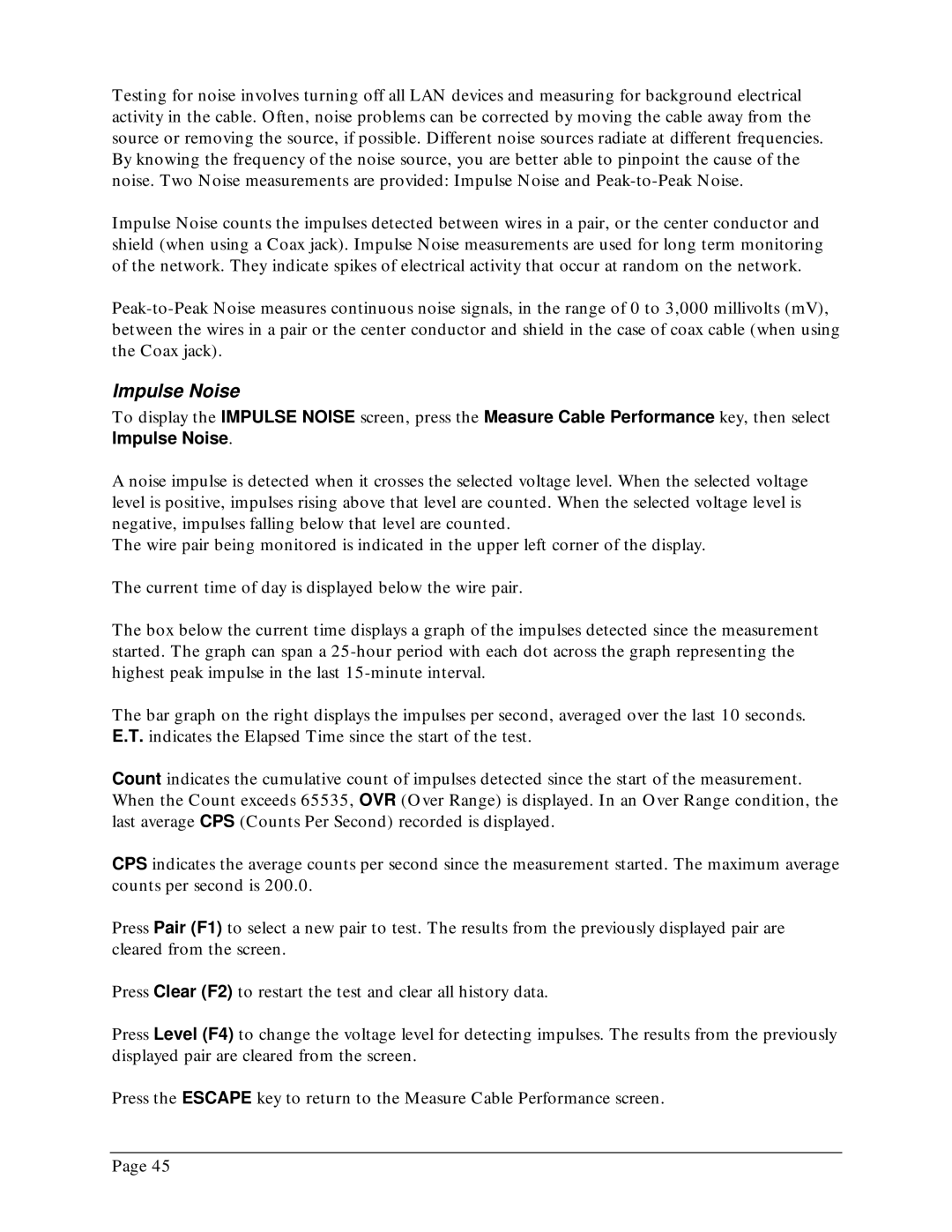Testing for noise involves turning off all LAN devices and measuring for background electrical activity in the cable. Often, noise problems can be corrected by moving the cable away from the source or removing the source, if possible. Different noise sources radiate at different frequencies. By knowing the frequency of the noise source, you are better able to pinpoint the cause of the noise. Two Noise measurements are provided: Impulse Noise and
Impulse Noise counts the impulses detected between wires in a pair, or the center conductor and shield (when using a Coax jack). Impulse Noise measurements are used for long term monitoring of the network. They indicate spikes of electrical activity that occur at random on the network.
Impulse Noise
To display the IMPULSE NOISE screen, press the Measure Cable Performance key, then select Impulse Noise.
A noise impulse is detected when it crosses the selected voltage level. When the selected voltage level is positive, impulses rising above that level are counted. When the selected voltage level is negative, impulses falling below that level are counted.
The wire pair being monitored is indicated in the upper left corner of the display.
The current time of day is displayed below the wire pair.
The box below the current time displays a graph of the impulses detected since the measurement started. The graph can span a
The bar graph on the right displays the impulses per second, averaged over the last 10 seconds. E.T. indicates the Elapsed Time since the start of the test.
Count indicates the cumulative count of impulses detected since the start of the measurement. When the Count exceeds 65535, OVR (Over Range) is displayed. In an Over Range condition, the last average CPS (Counts Per Second) recorded is displayed.
CPS indicates the average counts per second since the measurement started. The maximum average counts per second is 200.0.
Press Pair (F1) to select a new pair to test. The results from the previously displayed pair are cleared from the screen.
Press Clear (F2) to restart the test and clear all history data.
Press Level (F4) to change the voltage level for detecting impulses. The results from the previously displayed pair are cleared from the screen.
Press the ESCAPE key to return to the Measure Cable Performance screen.
Page 45
